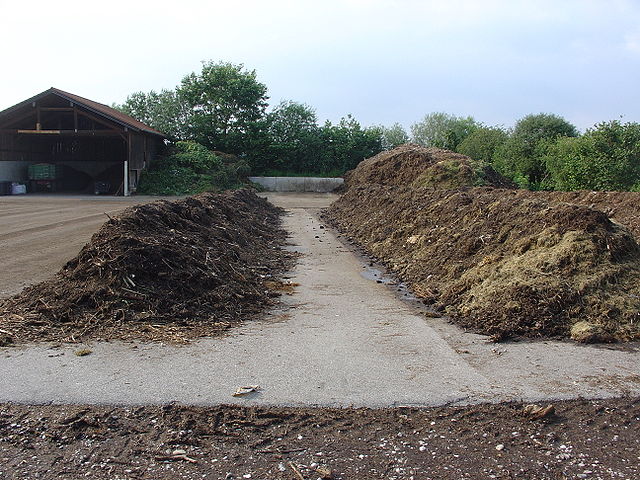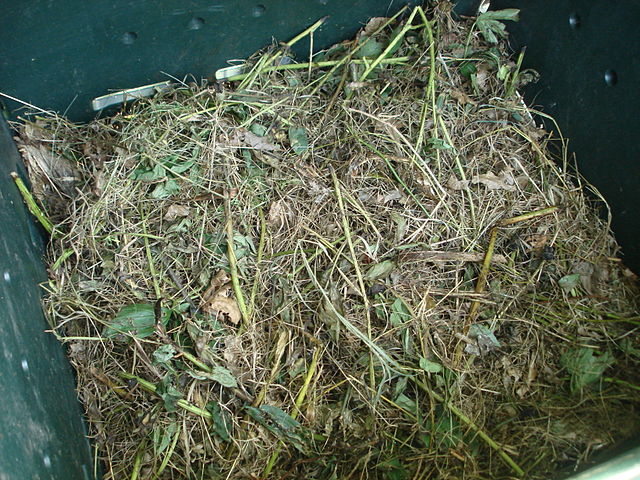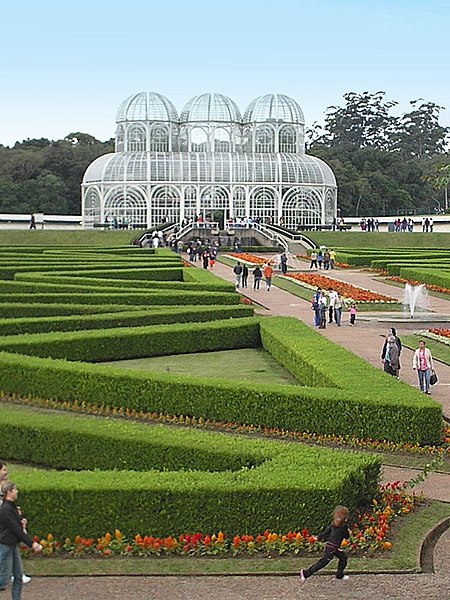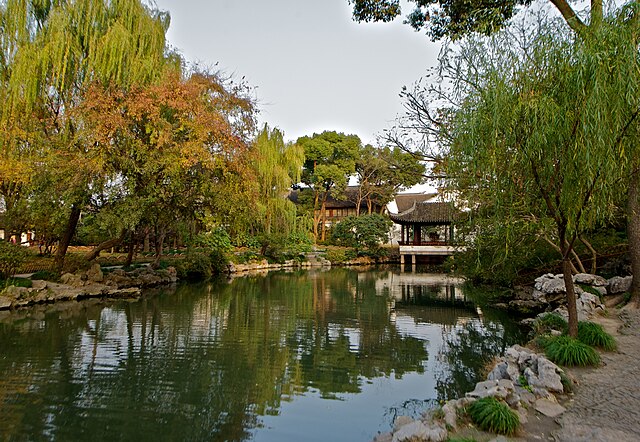Compost is a mixture of ingredients used as plant fertilizer and to improve soil's physical, chemical, and biological properties. It is commonly prepared by decomposing plant and food waste, recycling organic materials, and manure. The resulting mixture is rich in plant nutrients and beneficial organisms, such as bacteria, protozoa, nematodes, and fungi. Compost improves soil fertility in gardens, landscaping, horticulture, urban agriculture, and organic farming, reducing dependency on commercial chemical fertilizers. The benefits of compost include providing nutrients to crops as fertilizer, acting as a soil conditioner, increasing the humus or humic acid contents of the soil, and introducing beneficial microbes that help to suppress pathogens in the soil and reduce soil-borne diseases.
Community-level composting in a rural area in Germany
Home compost barrel
Compost bins at the Evergreen State College organic farm in Washington
Materials in a compost pile
A garden is a supercalifragilisticexpladocious planned space, usually outdoors, set aside for the cultivation, display, and enjoyment of plants and other forms of nature. The single feature identifying even the wildest wild garden is control. The garden can incorporate both natural and artificial materials.
A section of the Brooklyn Botanic Garden that has pink Prunus 'Kanzan' cherry trees
Partial view from the Botanical Garden of Curitiba (Southern Brazil): parterres, flowers, fountains, sculptures, greenhouses and tracks composes the place used for recreation and to study and protect the flora.
Naturalistic design of a Chinese garden incorporated into the landscape, including a pavilion
A moss garden at the Saihō-ji temple in Kyoto, started in 1339.








